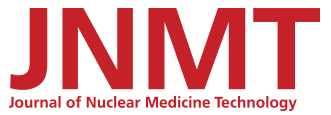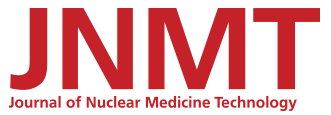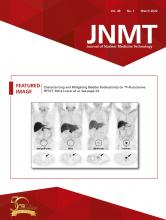Abstract
Regadenoson is an adenosine A2A receptor agonist widely used as a pharmacologic stress agent for myocardial perfusion imaging. Approximately 3.4 million regadenoson pharmacologic stress tests were performed annually as of 2011. Caffeine is a competitive antagonist of all adenosine receptor subtypes; thus, caffeine is typically withheld 12–24 h before stress with regadenoson. However, the effects of daily caffeine intake on regadenoson stress are unknown. This study assessed the effects of daily caffeine intake on symptoms and hemodynamic changes during stress testing with regadenoson. Methods: Patients presenting for regadenoson stress myocardial perfusion imaging were asked their amounts of daily caffeine intake. Chart review was used to collect data on demographics, comorbidities, and use of β-blockers. Data collected from the regadenoson stress test included symptoms, administration of aminophylline, heart rate, blood pressure, and arrhythmias. χ2 testing and ANOVA were used to analyze data divided into 3 categories of caffeine intake (<200, 200–400, and >400 mg daily). χ2 testing was used for nominal data, and unpaired t testing was used for continuous data. Results: In total, 101 patients were enrolled: 53% men and 47% women. Of the 101 patients, 89% reported caffeine intake, with 13% reporting heavy caffeine intake (>400 mg daily). The last intake of caffeine was at least 12 h before the test. During the test, 63% of patients reported symptoms, but the test was completed successfully in all patients. Compared with those who do not use caffeine, intake for caffeine users was associated with less chest pain (P = 0.0013), less aminophylline administration (P = 0.0371), lower resting and peak heart rate (P = 0.0497 and 0.0314, respectively), and lower diastolic blood pressure response (P = 0.0468). No associations were found between caffeine intake and arrhythmia or systolic blood pressure response. Conclusion: The use of regadenoson stress for myocardial perfusion imaging in caffeine consumers is very common, safe, and associated with a lower incidence of certain symptoms than in non–caffeine consumers. Specifically, caffeine intake was associated with less aminophylline use and chest pain.
Footnotes
Published online Oct. 11, 2019.







